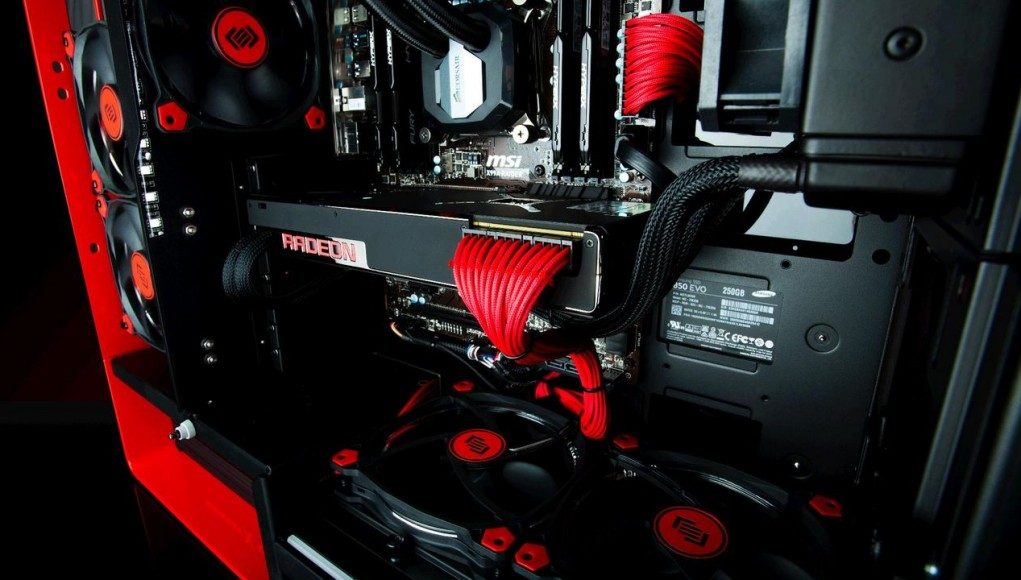 Yesterday AMD announced the Radeon Pro Duo water-cooled card, which is a dual-GPU with 16 TFLOPS of single-precision performance that’s based on the Fiji architecture and will sell for $1499. Tom’s Hardware reports that it “combines two Fiji GPUs, 8GB of High Bandwidth Memory, and four display ports.”
Yesterday AMD announced the Radeon Pro Duo water-cooled card, which is a dual-GPU with 16 TFLOPS of single-precision performance that’s based on the Fiji architecture and will sell for $1499. Tom’s Hardware reports that it “combines two Fiji GPUs, 8GB of High Bandwidth Memory, and four display ports.”
The Radeon Pro Duo implements asynchronous compute which is enabled by DX12, and early benchmarks by ExtremeTech have shown that AMD’s Fury X with the Fiji architecture outperformed the Nvidia GeForce GTX 980 Ti in the Ashes of the Singularity, which is the first released game that takes advantage of the new asynchronous compute API within DX12. Anandtech found similar benchmark results when <a href=”testing both DX11 and DX12.
I attended AMD’s GDC press conference yesterday and had a chance to catch up with Roy Taylor, who is the Corporate Vice President Alliances and Content and in charge of a lot of their VR initiatives. He talked to me about a number of AMD’s VR announcements including their new Radeon Pro Duo GPU, teased game engine integrations yet to be announced, a VR experience based upon the Assassin’s Creed movie coming out by 20th Fox, their VR Ready Premium program, Liquid VR being released onto GitHub, and some updates on the Vulcan API & GPU Open on Github.
LISTEN TO THE VOICES OF VR PODCAST
Roy sees that the Radeon Pro Duo will be a great GPU for VR filmmakers who have to stitch 360-degree video content, but also for VR content creators. Roy said that the game engines will be creating tools that are specific for exporting cinematic VR experiences, and we’re likely to hear more about this today and tomorrow as Unity and Epic Games make their GDC-specific announcements.
Roy also said that the Radeon Pro Duo will be the perfect GPU to be able to use Envelop VR’s EVE, which is an operating system for people to work completely within VR.
Each GPU on the dual-GPU Radeon Pro Duo will also be able to drive a single eye using Liquid VR, and I’d expect to see this new card be used for high-end VR experiences as well. There haven’t been a lot more details released about the specs for Radeon Pro Duo yet, but stay tuned this week as we’re likely to hear more announcements about how the game engines may be using this new capabilities — especially considering that Epic Games’ Tim Sweeney was at Samsung Unpacked event showing off how they’ve been integrating the Vulkan API to drive real-time graphics on a mobile phone that look amazing.
Become a Patron! Support The Voices of VR Podcast Patreon
Theme music: “Fatality” by Tigoolio







